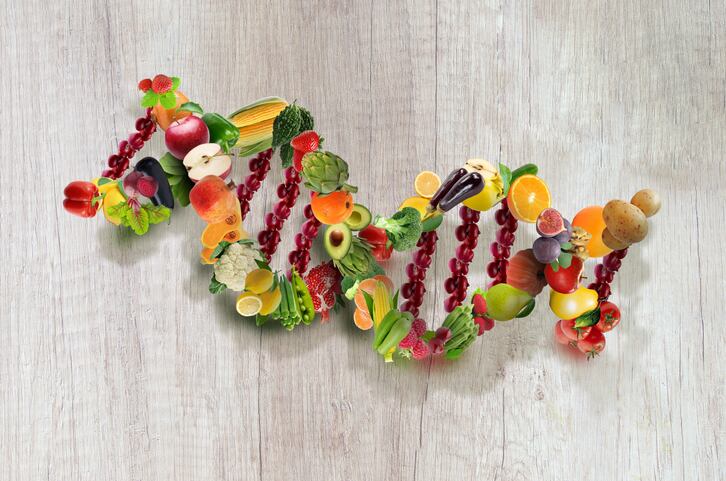After reviewing hundreds of studies, the company said its team of scientists and clinicians developed the panel, which also incorporates a validated dietary assessment tool and customized meal plan.
Humble beginnings
Nutrigenomix Inc. was founded in 2011 as a University of Toronto start-up biotechnology company.
The company just launched its new comprehensive report, which increased its panel of validated markers to 70 genes. It represents significant progress from the company's first iteration of the test that it launched eight years ago.
“When Nutrigenomix launched on June 12, 2012 we had a 7-gene test because that is where the science was. Now, eight years later, our test covers 70 evidence-based genetic markers that affect our response to dietary and lifestyle factors,” said Dr. Ahmed El-Sohemy, founder and chief science officer at Nutrigenomix.
The targeted nutrition and lifestyle genetic information provided by the test will help healthcare professionals and their clients determine the best dietary approach for optimal health, wellness and performance according to their unique genetic profile.
Beyond general dietary recommendations
Speaking to NutraIngredients-USA, El-Sohemy gave current coffee consumption recommendations, which is no more than 4 cups or 400mg of caffeine per day, as an example of how the company's new test can provide more detailed nutrition information.
“Research published in the Journal of the American Medical Association shows that about half of the population has the ‘slow’ metabolizer version of the CYP1A2 gene that increases their risk of heart disease if they consume more than 2 cups or 200 mg of caffeine per day. With this test, a practitioner will know which CYP1A2 gene variant their client has and can provide more specific advice based on their results. Roughly half of the population have the ‘slow’ metabolizer version of the gene that metabolizes caffeine, so if they simply follow the general dietary guidelines, this will increase their risk of a heart attack, hypertension, pre-diabetes and kidney disease,” he said.
El-Sohemy said the same concept applies to other aspects of the diet, where the middle of the road general guidelines may actually be harmful for some or ineffective for others.
Some of the genetic markers in the new report include those that have been shown to impact nutrient metabolism, food intolerances, weight management, eating behaviors, cardiometabolic health and fitness, as well as additional genetic insights for health and wellness focusing on areas such as inflammation and antioxidant capacity, sleep and alcohol sensitivity.
“One size does not fit all, and the expanded insights from the Nutrigenomix report will allow me to make evidence-based recommendations that fit each client’s unique nutritional needs. I have found clients to be more receptive and willing to make long-lasting dietary and lifestyle changes when they receive DNA-based dietary advice,” said Rachel Clarkson, RD.
Trends
El-Sohemy, who is also Professor and Canada Research Chair in Nutrigenomics at the University of Toronto, said one of the biggest trends they have witnessed is a greater interest in plant-based nutrition. “We were honored to receive the NutraIngredients award (Europe and Asia) for the Personalized Nutrition Initiative for the test we developed for vegans and vegetarians. ”
He added that other trends they’ve seen emerge is a focus on specific aspects of health and wellness: “For example, some are interested in specifically optimizing their heart health because of a family history while others are seeking a genetic test to help them identify the best dietary approach for reaching their ideal body weight. We have also seen a growing trend among fitness enthusiasts looking to improve their physical performance. In response to these consumer trends, we applied the relevant science to develop reports that focus on these aspects of personalized nutrition.”
Nutrigenomix currently has four tests that report the same genetic markers, with each test tailored to provide recommendations that align with different goals and preferences.
- Health report: Designed to improve general health and wellness through personalized nutrition and fitness recommendations.
- Sport report: Designed to provide nutrition and performance-related recommendations that will help athletes of all levels boost physical and mental performance while optimizing body composition and nutritional status.
- Fertility report: Designed to provide nutrition recommendations that will help those who are trying to conceive by optimizing their fertility potential.
- Plant-based report: Designed to suit the dietary needs of both vegetarians and vegans with a focus on general health and wellness.
Challenges
It appears that a lot of people are warming up to the idea of DNA-based nutrition, but there are a number of challenges that the segment must overcome. El-Sohemy said the main limitation for growth right now is awareness of testing and knowledge of the benefits by consumers and healthcare practitioners alike.
“We have certainly seen a growing demand for DNA-based nutrition advice especially from nutrition professionals such as registered dietitians who want to provide their clients with more precise recommendations tailored to their client’s specific genetic profile. This demand is partly fueled by the expanded knowledge base coming from studies published in some of the top scientific and medical journals. One factor holding back the rapid uptake of genetic testing for personalized nutrition used to be the cost, which is around $300-$400, but consumers are beginning to see the value of that investment into their health,” he added that unlike other types of tests, a genetic test only needs to be taken once since the sequence of genes does not change.
Personal...but not that personal
El-Sohemy explained that one of the factors holding back the segment is privacy concerns. Some users might worry that their genetic information could be used to discriminate against them in their job or for health insurance coverage. “In the United States, the Genetic Information Non‐discrimination Act (GINA) was signed into law in May of 2008 and offers federal protection against such discrimination. In Canada, the Genetic Non‐Discrimination Act (GNA), formally known as Bill S‐201, was passed into law on May 4, 2017, and protects individuals from insurance companies and employers using, requesting or requiring genetic test results.”
He added that Nutrigenomix ensures the anonymity of all samples and uses the most stringent standards for secure data transfer, privacy and security. Additionally, the company does not test for any genetic markers that are diagnostic of any disease.
Nutrigenomix has offices in Toronto, Chicago, London, Sydney and São Paulo with a network of more than 8,000 healthcare practitioners in 35 countries.
The pandemic has caused many practitioners to close their clinics and to work remotely. In order to support these practitioners, Nutrigenomix said they now offer free drop shipping of kits directly to their clients.




